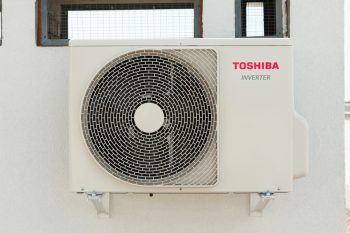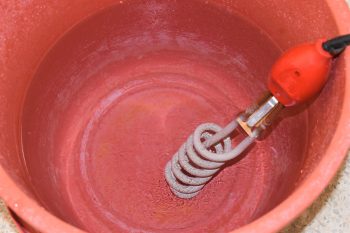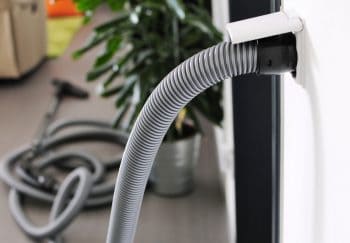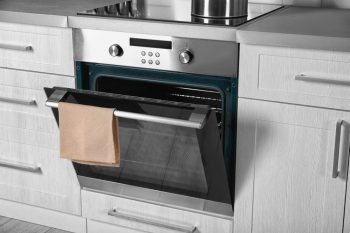
Washing machines are a modern-day convenience most of us can’t live without. But, that convenience comes with some drawbacks – one of them being a persistent damp smell. This smell is usually caused by a buildup of mold, mildew, and bacteria that thrive in the damp and dark environment of your washing machine. So, how do you get rid of this unpleasant odor? Let’s dive in.
Eliminate damp smell from a washing machine by first mixing 1/4 cup of baking soda with 1/4 cup of water and adding it to the machine’s detergent container. Then, pour 2 cups of distilled white vinegar into the washer’s detergent dispenser and run a cycle on the hottest setting. Clean the rubber gasket, lid, and other visible seams with a damp cloth to remove any grime. Regular maintenance, such as leaving the washer door open when not in use and regularly cleaning the washer tub, can help prevent the damp smell from returning.
Identifying the Source of Damp Smell
Before we delve into the solutions, it’s important to understand what causes the damp smell in your washing machine. There are multiple factors that contribute to this issue. The primary culprits are mold, mildew, and bacteria. These microorganisms thrive in damp and dark environments, making the interior of your washing machine a perfect breeding ground.
When you wash your clothes, body oils, dirt, hair, and scum get trapped in the gasket, seal, and detergent dispenser. Over time, this buildup, coupled with the humidity of your laundry room, results in that unpleasant damp smell. Furthermore, using too much detergent can lead to soapier water that doesn’t evaporate easily, exacerbating the problem.
Step-by-Step Guide to Eliminating Damp Smell from Your Washing Machine
Now that we know the causes, let’s look at the solutions. Here’s a step-by-step guide on how to eliminate damp smell from your washing machine:
- Mix 1/4 cup of baking soda with 1/4 cup of water and add it to your machine’s detergent container.
- Pour 2 cups of distilled white vinegar into your washer’s detergent dispenser and run a cycle on your machine’s hottest setting and longest cycle. This will help neutralize odors and break down any buildup.
- Clean the rubber gasket, lid, and other visible seams with a damp cloth to get rid of built-up grime.
- For top-loading machines, increase the amount of vinegar to 4 cups and allow the machine to fill up part of the way before opening the lid and pausing the cycle. Introduce the vinegar into the water and allow it to sit for one hour.
- To deodorize a washing machine while clothes are in the wash, add 2 or 4 capfuls of Fresh Wave Laundry Booster to the wash or rinse cycle.
- Regularly clean the washer tub, gasket, and interior surfaces to prevent unpleasant odors.
Maintenance Tips to Prevent Damp Smell
Preventing the damp smell is just as important as eliminating it. Here are some maintenance tips to keep your washing machine fresh:
- Use High-Efficiency (HE) detergents for HE appliances, especially front-load washers.
- Wash clothes inside out to remove odors and dirt more effectively.
- Leave the washer door open when not in use to allow the washing machine to air out.
- Clean the washer tub and wipe down the interior and gasket regularly.
- Run a service wash every month, which is a very hot wash without any clothes in the drum.
Dealing with Persistent Damp Smell
If the damp smell persists even after following the above steps, it might be time for a deep clean. This involves removing and cleaning the soap, bleach, and softener dispensers, cleaning the detergent drawer, wiping down the rubber gasket, cleaning the filter, and running cleaning cycles with baking soda and white vinegar.
For severe cases, you might want to consider using commercial cleaning products such as Affresh Washing Machine Cleaner, Oxi Clean Washing Machine Cleaner with Odor Blasters, or Tide Washing Machine Cleaner. These products are specifically designed to clean washing machines and eliminate unpleasant odors.
Conclusion
A damp smell in your washing machine can be a nuisance, but with regular cleaning and maintenance, it can be avoided. By using a combination of baking soda, vinegar, and commercial cleaners, you can keep your washing machine smelling fresh and clean. Remember, prevention is key – so don’t wait until the smell becomes noticeable to start cleaning your machine. Stay on top of your washing machine hygiene and your laundry will thank you for it!
Frequently Asked Questions
Can I use apple cider vinegar instead of white vinegar to clean my washing machine?
While apple cider vinegar has many uses, it is best to use distilled white vinegar for cleaning your washing machine. White vinegar is more acidic than apple cider vinegar, making it more effective at breaking down the grime and mildew that cause the damp smell.
How often should I clean my washing machine to prevent the damp smell?
For best results, you should clean your washing machine once a month. However, if you notice a damp smell starting to develop, you may want to clean it more frequently.
What is a service wash and how does it help in preventing the damp smell?
A service wash is a hot wash without any clothes in the drum. It helps to remove any buildup of detergent, dirt, and bacteria that may be lurking in your washing machine. Running a service wash once a month can help prevent the development of a damp smell.
Can I use any commercial cleaner for my washing machine?
While there are many commercial cleaners available, it’s best to use one specifically designed for washing machines, such as Affresh Washing Machine Cleaner, Oxi Clean Washing Machine Cleaner with Odor Blasters, or Tide Washing Machine Cleaner. These products are formulated to effectively clean washing machines and eliminate unpleasant odors.
Why should I use High-Efficiency (HE) detergent for my HE appliances?
High-Efficiency (HE) detergents are specially formulated for high efficiency appliances. They produce fewer suds and rinse out more easily than regular detergents, which can help prevent the buildup of detergent residue that can contribute to a damp smell.












